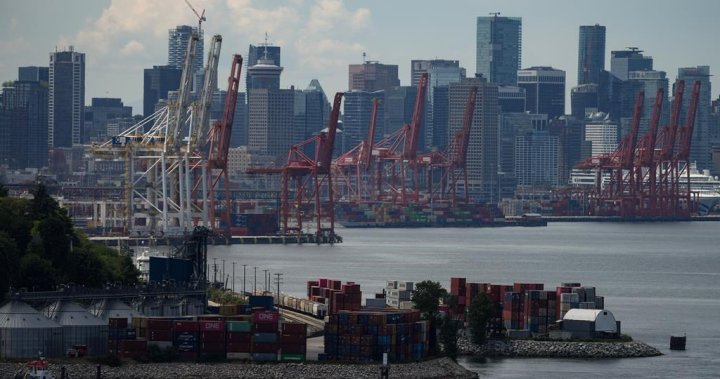Forty per cent of Canadian industries are “highly vulnerable” to external demand and supply shocks, Statistics Canada says.
The federal statistic agency said on Friday those industries, which account for 25 per cent of Canada’s economic output, are exposed to risks in global supply chains.
“Manufacturers and firms that imported goods from abroad have identified import supply chain difficulties as a short-term business obstacle,” it said.
“Participation leads to exposure to external demand and supply shocks. Forty per cent of industries accounting for 25 per cent of output are highly vulnerable to both external demand and supply shocks.”
StatCan on Friday released a report entitled “Tracking Canada’s Evolving Supply Chain Links and Their Effects.” It comes after the COVID-19 pandemic exposed the limits of the global supply chain and the strain disruptions can cause on economies.
Participation in global supply chains has been associated with higher productivity and wages, StatCan said. Manufacturing firms that participate in global value chains have, on average, 10 per cent higher labour productivity and six per cent higher wages than those that do not.
Financial news and insights
delivered to your email every Saturday.
Financial news and insights
delivered to your email every Saturday.
Aside from the risk of supply shocks, rising import prices accounted for about half of consumer inflation at its peak in the last three quarters of 2022, the agency said.
Canada’s National Supply Chain Task Force called for an overhaul in its final report, released in October 2022.
The report’s authors highlighted how government and industry struggle to cope with uncertainties arising due to rapidly changing trade patterns, human- and climate-caused disruptions, shifting geopolitical risk and increased consolidation in major transportation modes.
The report made 21 recommendations, including easing port container congestion, addressing labour shortages and speeding up the process to approve winter transportation on ice roads, as well as developing a transportation supply chain labour and workforce strategy.
StatCan said on Friday investments it is making with Transport Canada will help inform policies to reduce freight congestion and improve supply chain efficiency and future infrastructure planning, as well as build on real-time supply chain measures and develop new supply chain price and volume indexes, including better data on domestic flows.
© 2024 Global News, a division of Corus Entertainment Inc.




